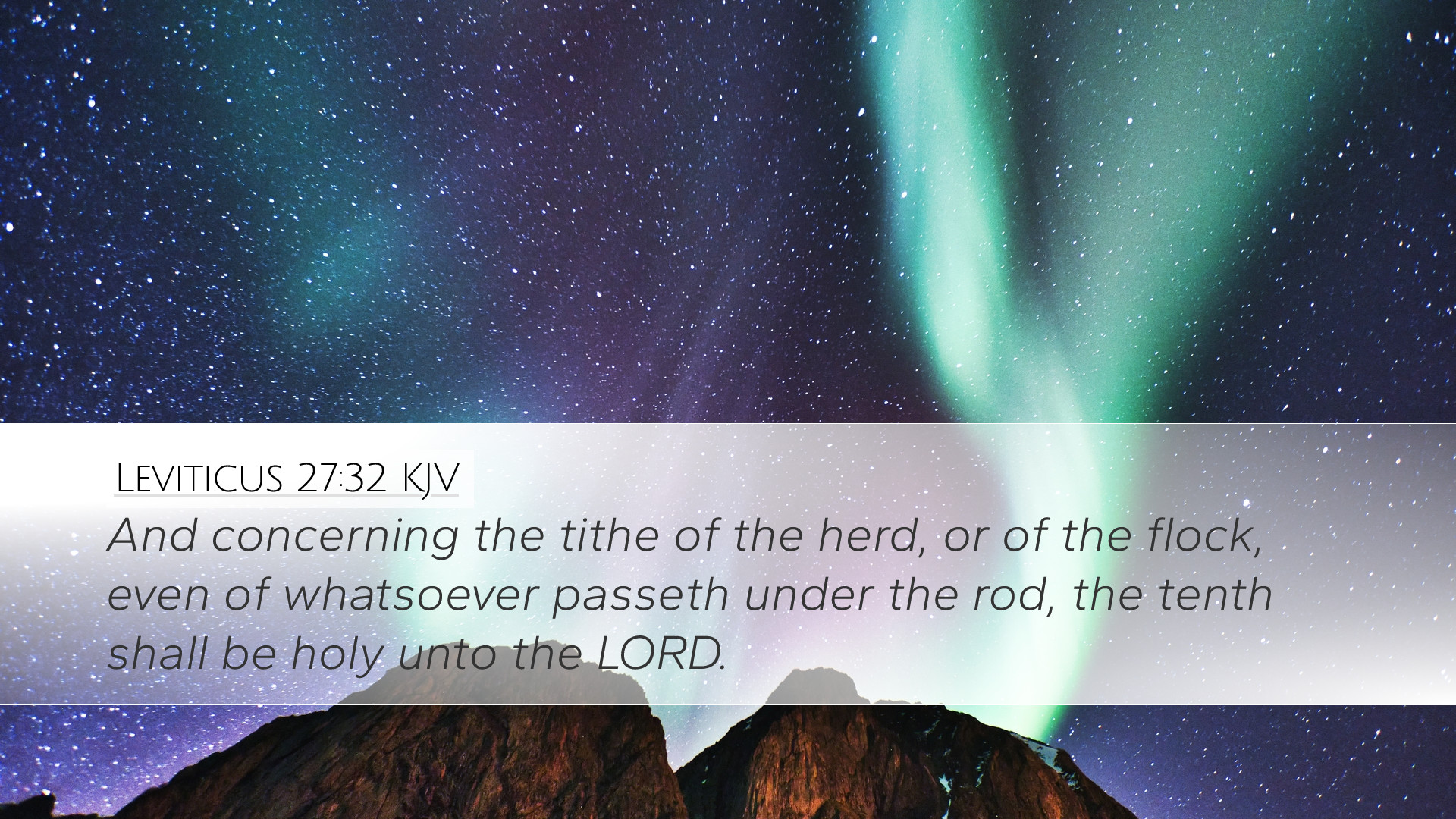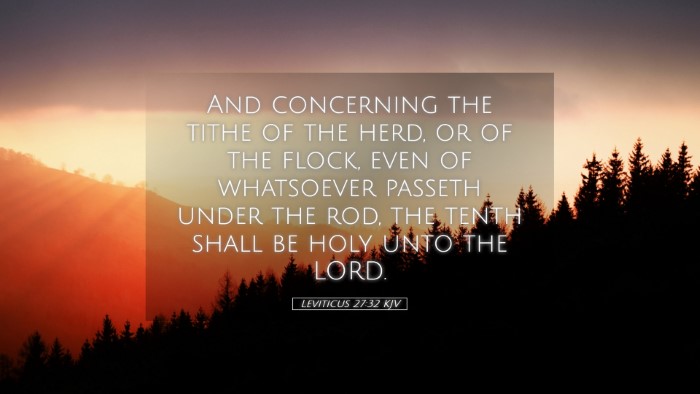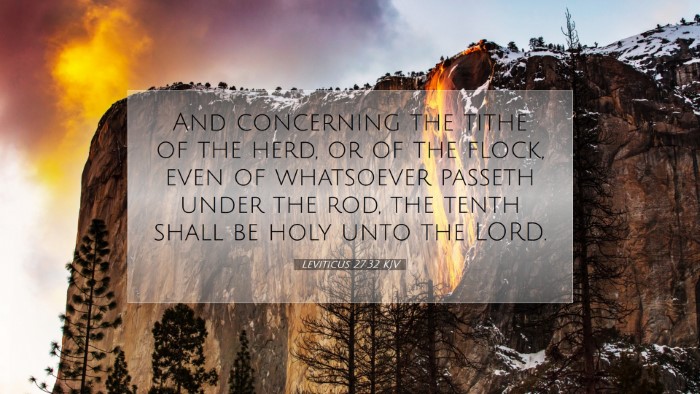Commentary on Leviticus 27:32
Bible Verse: "And concerning the tithe of the herd, or of the flock, even of whatsoever passeth under the rod, the tenth shall be holy unto the LORD." (Leviticus 27:32 KJV)
Introduction
This verse addresses the system of tithing livestock, a critical aspect of the Israelite worship and economy. The tithe signifies a portion set aside for God, representing acknowledgment of His sovereignty and provision. This commentary synthesizes various public domain insights to enhance understanding for pastors, students, theologians, and scholars.
Contextual Background
The agricultural society of ancient Israel relied heavily on livestock for sustenance and economic stability. Leviticus, part of the Torah or Pentateuch, presents detailed laws governing Israel's religious and social life, emphasizing holiness and the proper conduct expected of God's people.
Exegesis of the Verse
This verse particularly discusses the tithe from herd and flock. Let's break down the elements:
- Tithe: The term 'tithe' means "one-tenth." In this context, it refers to the portion of livestock dedicated to God.
- Herd and Flock: This encompasses all domesticated animals; bulls, cows, sheep, and goats, indicating the inclusivity of God's command.
- Passeth under the rod: This phrase symbolizes the method of counting and confirming the animals. The shepherd would pass his flock under a rod to identify and separate the tenth for God.
- Holy unto the LORD: The designation "holy" implies that the tithe is set apart for sacred purposes, signifying dedication to divine service.
Theological Significance
Matthew Henry, in his commentary, highlights the spiritual act of giving and how the practice of tithing cultivates a spirit of gratitude and acknowledgment of God's provision.
Albert Barnes observes that this practice not only regulates the community's religious observance but also reinforces the social structure by ensuring that resources are allocated for worship and the support of priestly duties.
Adam Clarke emphasizes the moral implications of tithing, noting that it reinforces faith and trust in God, encouraging believers to recognize that all wealth ultimately belongs to Him and is managed through divine stewardship.
Practical Applications for Today
From this verse, several practical applications can be drawn:
- Commitment to Tithing: While the form may vary, the principle of setting aside a portion for ministry and outreach remains applicable in modern contexts.
- Holiness in Giving: Emphasizing that giving from a heart of devotion and respect fosters a deeper relationship with God, moving beyond legalistic approaches.
- Resource Management: Encouraging believers to consider how they manage their resources in light of God's ownership over all creation, promoting stewardship rather than ownership.
Conclusion
Leviticus 27:32 serves as a poignant reminder of the biblical principle of tithing, with deep roots in faith and community sustenance. Through the insights provided by esteemed commentators, we glimpse the historical, theological, and practical dimensions of this command. In a contemporary context, this reinforces personal discipleship and communal responsibility, guiding individuals and communities to honor God through their resources.


